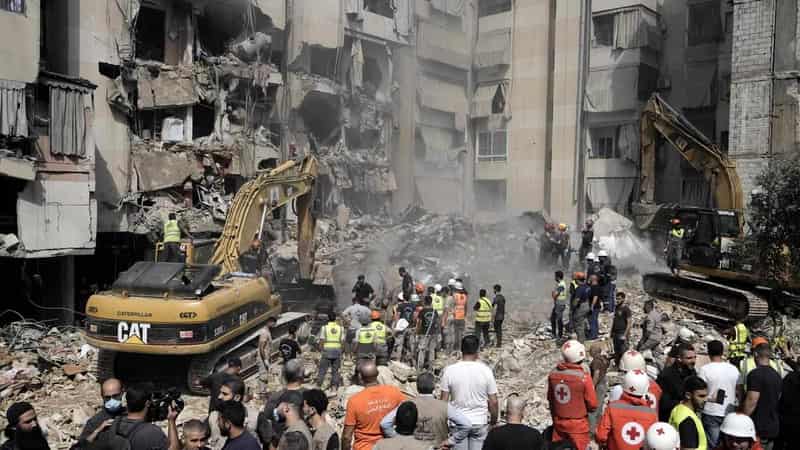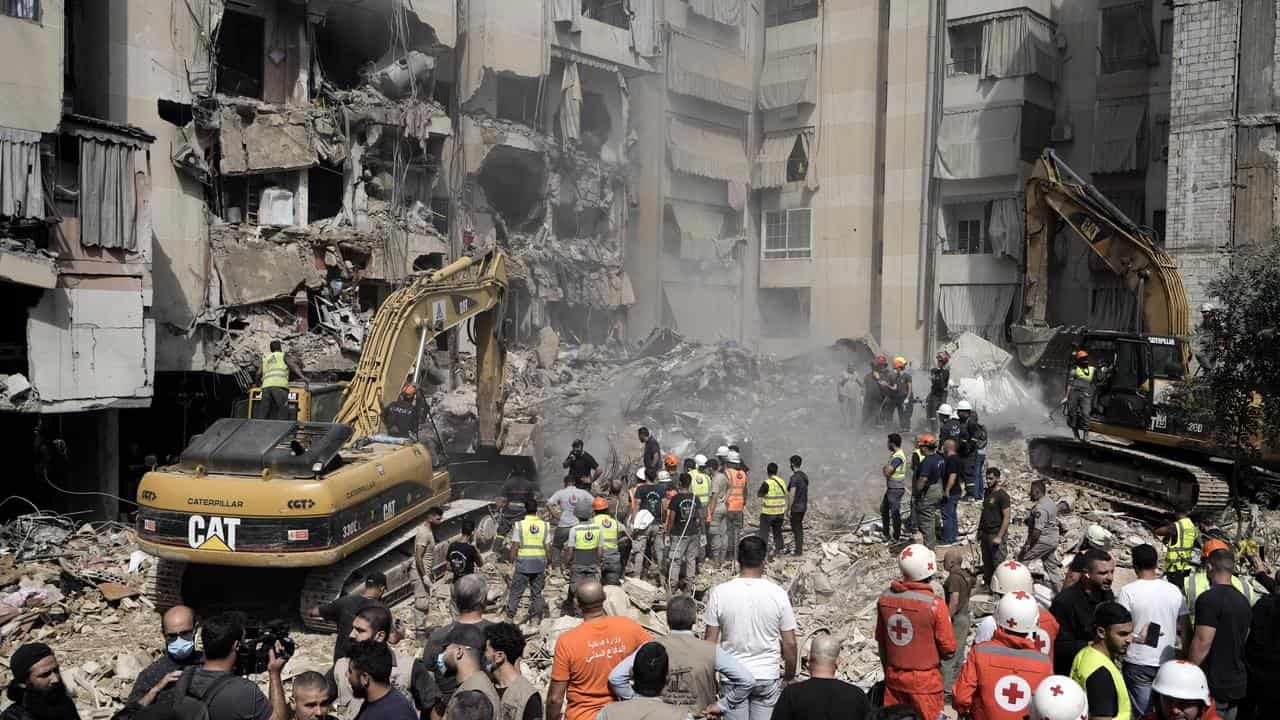
The death toll from an Israeli airstrike on a Beirut suburb that killed a top Hezbollah commander and other senior figures has risen to 31, Lebanon’s health minister says.
Hezbollah said the dead included 16 of its members, including senior leader Ibrahim Aqil and another top commander, Ahmed Wahbi.
Seven women and three children were among those killed in the deadliest Israeli airstrike on Beirut since the summer 2006 Israel-Hezbollah war.
Health Minister Firass Abiad told reporters 68 people were also wounded of whom 15 remain in hospital.
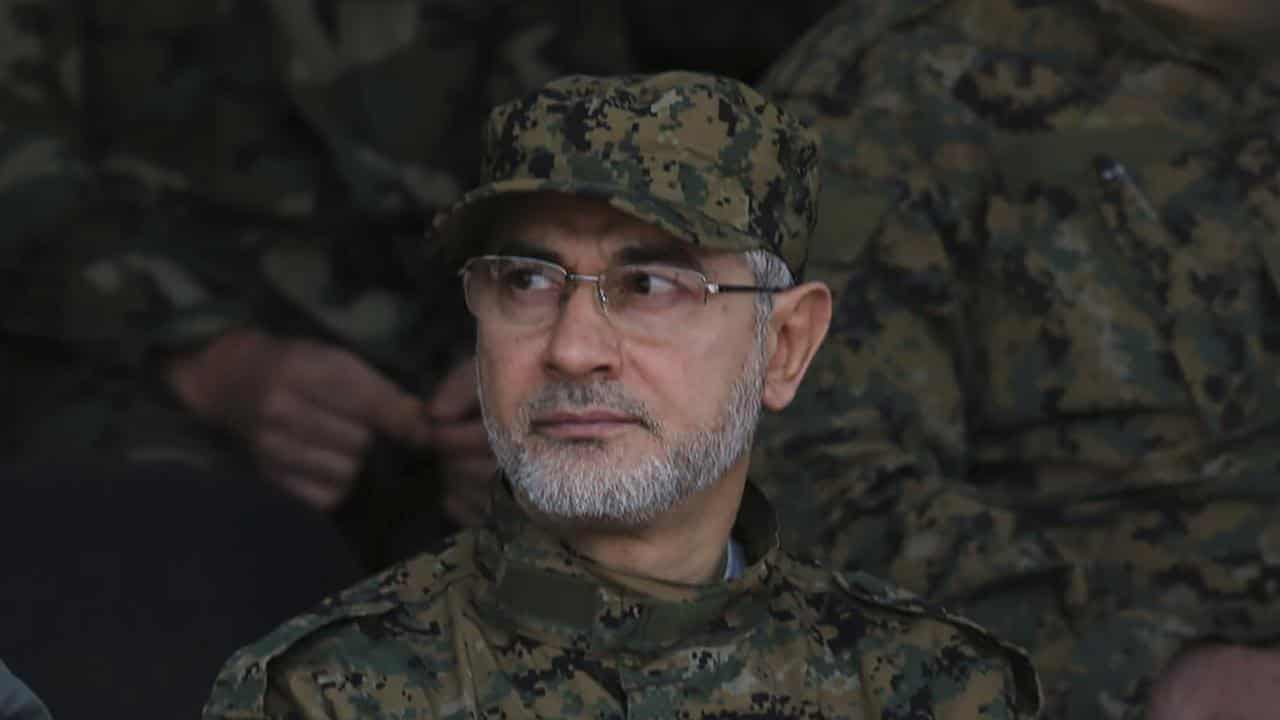
The casualties included Akil, a Hezbollah commander who was in charge of the group’s elite Radwan Forces, as members of the militant group were meeting in the basement of the building that was destroyed on Friday.
Aqil had sat on Hezbollah's top military council, sources in Lebanon told Reuters.
Three Syrian nationals were among the dead, Abiad said.
In a brief statement, Prime Minister Benjamin Netanyahu said Israel's goals were clear and its actions spoke for themselves.
Defence Minister Yoav Gallant, who said this week that Israel is launching a new phase of war on the northern border, posted on social media platform X: "We will continue operating against Hezbollah until we achieve our mission: ensuring the safe return of Israel’s northern communities to their homes."
Tens of thousands of people have been evacuated from homes on both sides of the Israel-Lebanon border since Hezbollah began firing rockets at Israel in what it says is sympathy with the Palestinians in parallel to the war in Gaza.
Israel, which last fought an all-out war against Hezbollah 18 years ago, has said it will use force if necessary to ensure its citizens can return.
The strike inflicted another blow on Hezbollah after two days of attacks on the group in which pagers and walkie-talkies used by its members exploded, killing 39 people and wounding thousands.
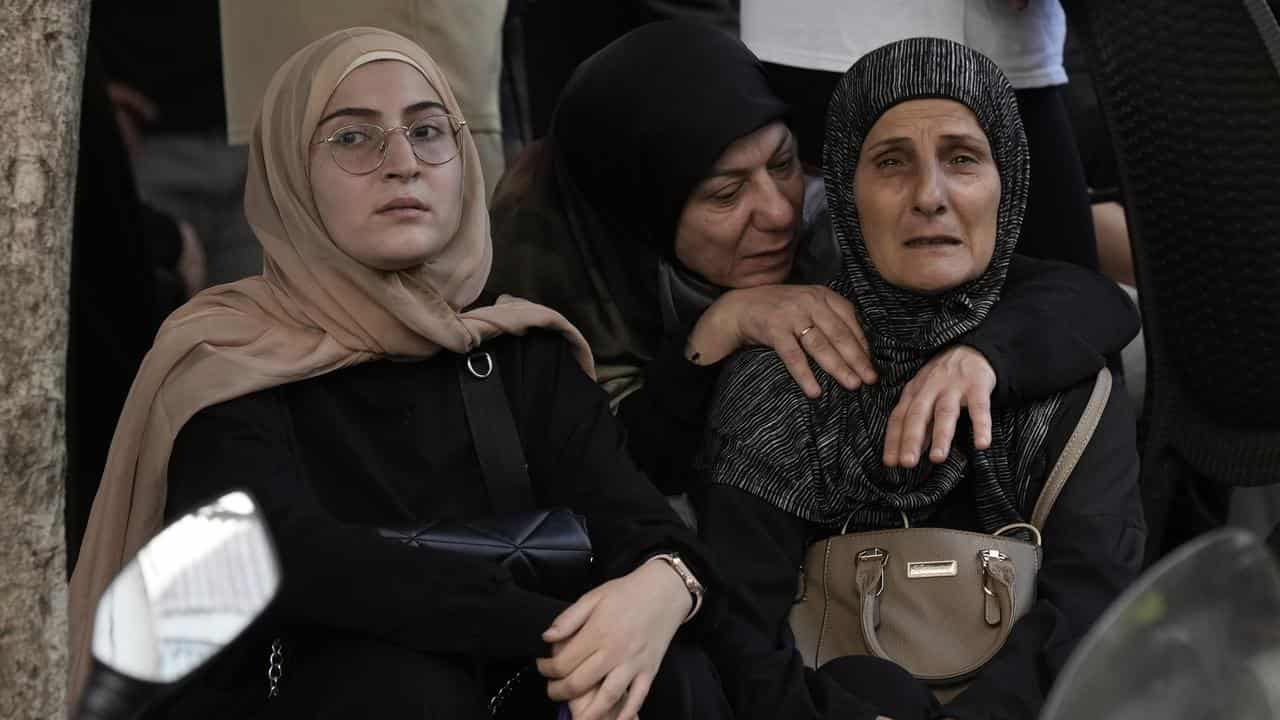
The UN special co-ordinator for Lebanon, Jeanine-Hennis Plasschaert, said Friday's strike in a densely populated area of Beirut's southern suburbs was part of "an extremely dangerous cycle of violence with devastating consequences. This must stop now."
The strike marked the second time in less than two months that Israel has targeted a leading Hezbollah military commander in Beirut.
In July, an Israeli air strike killed Fuad Shukr, the group's top military commander.
Aqil had a $US7 million ($A10 million) bounty on his head from the United States over his link to the deadly bombing of Marines in Lebanon in 1983.
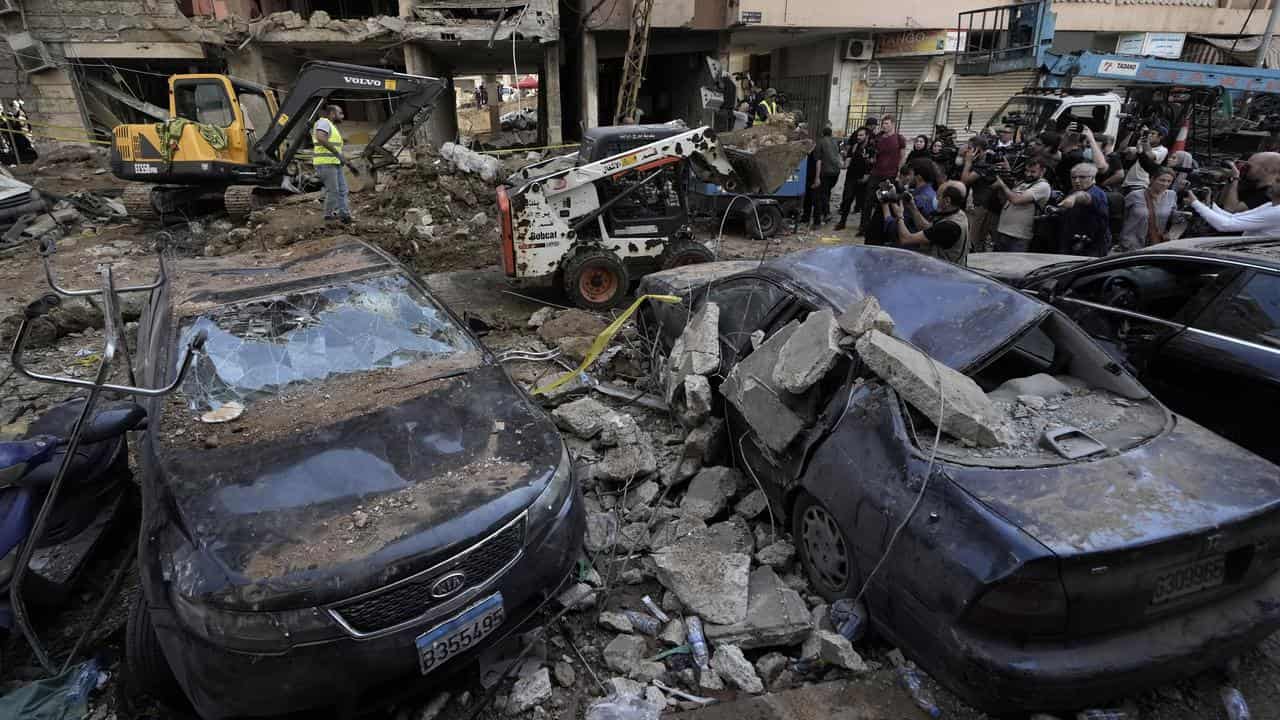
The Israeli military said Aqil had been head of Hezbollah operations since 2004 and was responsible for a plan to launch a raid on northern Israel, similar to the Hamas-led attack on southern Israel on October 7 that triggered the war in Gaza.
The conflict between Israel and Hezbollah, ignited by the Gaza war, has intensified significantly this week.
On Thursday night, the Israeli military carried out its most intensive air strikes in southern Lebanon since the conflict erupted almost a year ago.
With AP
